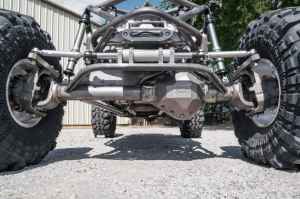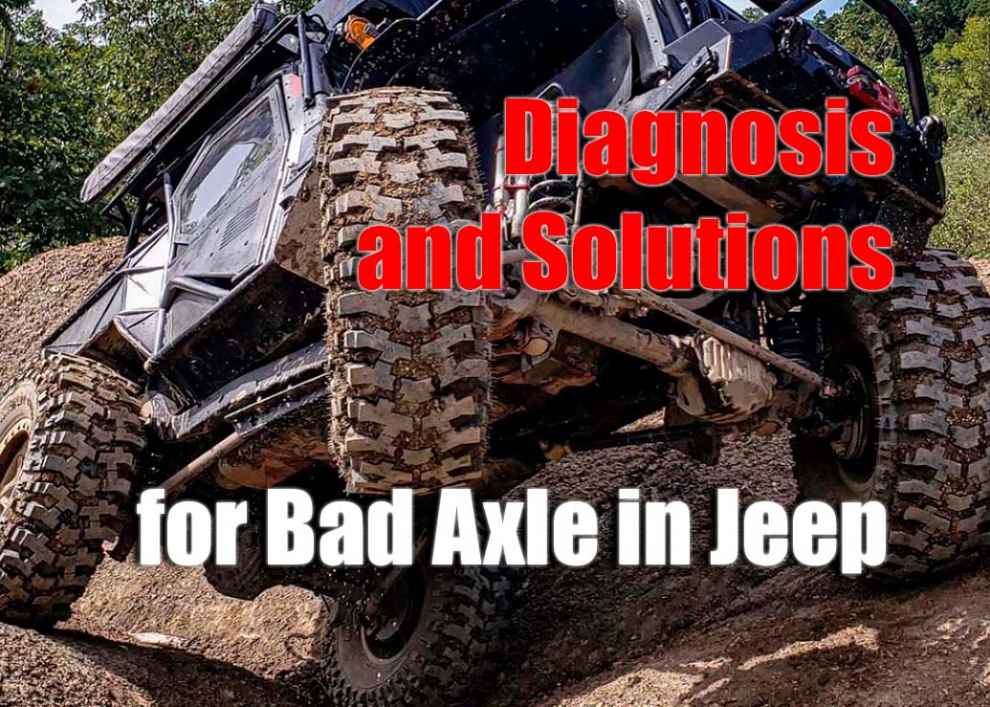A bad axle in a Jeep is not just a minor inconvenience but a serious safety concern. This crucial component of the drivetrain is responsible for transmitting power from the engine to the wheels, allowing the vehicle to move and bear its weight. A faulty axle can lead to loss of control, difficulty steering, and unnecessary wear and tear on your vehicle. Understanding the symptoms and causes of a bad axle and knowing how to remedy the problem is essential for any Jeep owner. This guide will dive into the reasons behind bad axles in Jeeps and provide valuable insights into diagnosis and solutions.
Causes of Bad Axles in Jeeps
Bad axles in Jeeps can occur due to various factors, and they are essential components of the vehicle’s drivetrain. The axles transmit power from the engine to the wheels, enabling movement and supporting the vehicle’s weight. Some common causes of bad axles in Jeeps include:
- Wear and Tear: The constant rotation and torque applied to the axles can lead to wear and tear over time, eventually causing them to weaken and fail.
- Lack of Maintenance: If the axles are not correctly lubricated and inspected, debris and dirt can accumulate, damaging the axle components.
- Off-Road Use: Jeeps used for off-roading can stress the axles significantly, leading to increased wear.
- Overloading: Exceeding weight limits can strain the axles, leading to premature wear.
- Accidents and Collisions: Impacts can cause damage to the axles, resulting in misalignment or bending.
- Rust and Corrosion: Harsh weather conditions and road salt can weaken the axles.
- Improper Modifications: Aftermarket changes, particularly those affecting suspension, can cause premature wear.
- Manufacturing Defects: Occasionally, poor-quality materials can make axles prone to failure.
- Excessive Vibration: Constant vibrations can strain axles, causing premature wear.
Symptoms of Bad Axle in a Jeep

Diagnosing a Faulty Axle
Proper diagnosis of a bad axle requires expert inspection and specific testing. Initially, a visual inspection can reveal damage or wear on the axle components. This includes checking for dust or debris buildup, indicating issues with axle seals. Measurement techniques such as bearing play and hub-and-axle runout assessments help gauge the axles’ condition accurately. Misalignment or excessive wear may lead to further examination, involving vehicle scanning tools and inspection of other parts like hubs, seals, or bearings to pinpoint the exact cause of axle failure. A comprehensive diagnosis ensures that the appropriate repairs are made.
Solutions for a Bad Axle in Jeeps
Fixing a bad axle depends on the problem’s nature and severity, as determined by a skilled mechanic. For minimal wear, replacing seals and bearings may resolve the issue, maintaining optimal performance and safeguarding against further deterioration. In cases of more significant damage, like cracks or bending, full replacement of both axles might be the recommended course of action. This guarantees future safety and reliability. Beyond repairs, embracing a routine maintenance schedule, such as frequent lubrication, is a proactive measure to protect against subsequent axle issues and contribute to your Jeep’s longevity.
Conclusion
A bad axle in a Jeep is a pressing issue that demands immediate attention. Recognizing the symptoms and understanding the underlying causes are the first steps towards a solution. Whether it’s a minor repair or a complete replacement, acting promptly will not only ensure the longevity of your vehicle but more importantly, keep you and your passengers safe on the road. Always consult with a qualified mechanic if you suspect any issues, and adhere to proper maintenance schedules to prevent potential problems. The peace of mind knowing your vehicle is in optimal condition is well worth the effort.

Add Comment